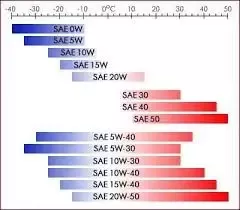Your engine oil might be making noise due to several reasons. Let’s explore some possibilities:
- Low Oil Level: When the oil level is insufficient, moving parts inside the engine don’t receive proper lubrication. This can lead to tapping, ticking, or knocking noises. Check your oil level and top it up if needed.
- Old or Contaminated Oil: Over time, engine oil accumulates dirt, debris, and contaminants. Dirty oil loses its effectiveness and can cause friction-related noise. Regular oil changes are essential to maintain optimal lubrication.
- Worn Bearings: Bearings (such as crankshaft bearings) rely on a film of oil to prevent metal-to-metal contact. If the oil quality degrades or the bearings wear out, you may hear grinding or rumbling sounds.
- Oil Pump Issues: The oil pump ensures oil circulation throughout the engine. A failing oil pump can result in inadequate oil pressure, leading to noise. Inspect the pump and replace if necessary.
- Hydraulic Lifters: Hydraulic lifters rely on oil pressure to function smoothly. Dirty or low-quality oil can cause lifter noise (tapping or ticking).
- Timing Chain or Belt: The timing chain or belt requires proper lubrication. If it becomes loose or damaged, it can create noise.
- Valve Train Problems: The valve train (valves, camshaft, rockers) needs sufficient oil flow. Inadequate oil supply can lead to tapping sounds.
- Oil Filter Clogs: A clogged oil filter restricts oil flow. Regularly replace the filter during oil changes.
- Viscosity Mismatch: Using oil with the wrong viscosity (thickness) can affect engine performance and noise levels. Follow the manufacturer’s recommendations.
- Cooling System Issues: Overheating due to low oil can stress engine components and cause noise. Ensure proper cooling system function.
Remember that diagnosing engine noise requires professional expertise. If the noise persists or worsens, consult a mechanic to identify and address the specific issue.
Read More: Does Engine Oil Make Noise?


